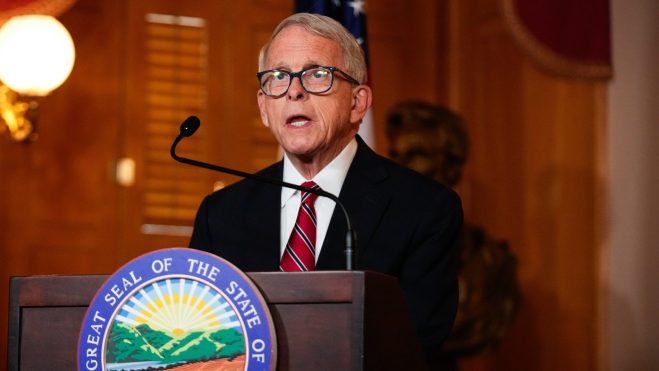Online Sweeps Giant VGW Signs Deal With California Tribe
Sweepstakes operator may be angling for regulation in California with new partnership
2 min

Sweepstakes casino operator VGW dramatically raised the stakes of the industry’s fate in California on Monday when it announced a partnership with Kletsel Dehe Wintun Nation of the Cortina Rancheria tribe.
“We are delighted to enter into this partnership with KEDA [the Kletsel Economic Development Authority] and look forward to working together to ensure economic opportunities well into the future,” said VGW CEO and founder Laurence Escalante. “We’ve operated in North America for more than a decade, creating not only great games, user experiences, and entertainment but ensuring this is done safely, responsibly, and at the highest level of standards — in line with our core value of ‘we do what’s right.'”
California state government is currently pondering legislation, AB 831, to ban online sweepstakes casino operators. Legislatures in Nevada, Montana, Connecticut, and most recently New Jersey have already enacted such bills this calendar year.
The partnership was announced the same day that AB 831, which has already passed two Senate committees, was placed “in suspense” by the Appropriations Committee. Should Assemblyperson Avelino Valencia’s bill clear the full Senate, it must still pass through the lower chamber since AB 831 is a “gut and amend.”
VGW is a key stakeholder in the Social Gaming Leadership Alliance (SGLA) and a strident opponent of AB 831. The SGLA submitted testimony in opposition to the bill, which included an Eilers & Krejcik study it commissioned that claimed online social casino generates “more than $1 billion in direct and indirect benefit to California annually.”
Kletsel Dehe hits the ground running
It did not take long for VGW’s new California-based partner to enter the Golden State legislative fray. The tribe’s economic development arm, KEDA, submitted oral testimony opposing Valencia’s legislature.
“This bill lacks unanimous support among California tribes, has advanced without meaningful consultation with many of us, and threatens our inherent right to create legitimate revenue streams to support our people,” said KEDA CEO Eric Wright.
“For tribes like ours — far from high‐traffic tourism corridors — geography has always limited traditional economic development,” Wright continued. “Large, well‐established gaming tribes already benefit from these geographic advantages and decades of success. It is self‐serving for them to advocate for policies that restrict emerging digital commerce opportunities for others, effectively holding smaller and less‐advantaged tribes hostage to their location.
“Eliminating lawful, regulated digital opportunities will deepen these disparities, reduce self‐sufficiency, and undermine the state’s commitment to economic justice for all tribes. We urge the committee to reject AB 831 and work toward legislation that expands — not restricts — opportunity for every tribal nation.”
More on Eilers & Krejcik study
The economic study — referenced in oral testimony by Shane Levine on behalf of the SGLA — estimated the $2.42 billion worth of online sweepstakes player purchases made in California accounts for slightly more than one-sixth (17.3%) of the $14.3 billion in national sales estimated for this year. It also estimates California generates $790.5 million of the $4.68 billion in annual net revenue.
The $1 billion-plus in benefits for California was broken into two components. There is $802 million in “direct economic flows,” with $732 million in marketing spend through California-based platforms Meta and Google and the other $70 million via payment processing fees and cloud-hosting fees for California-based companies.
The $208 million in indirect household earnings helps support nearly 1,200 California-based jobs “throughout the supply chain.”
The study also included revenue projections based on being a regulated licensee, estimating such licensing coupled with a tax on player purchases could generate between $200 million and $300 million in annual revenue for the state.
That nugget, coupled with Levine’s testimony in support of having sweeps regulated in California, showed that opponents of the bill could be trying to make AB 831 a two-year process. This was a possibility raised by Bill Gantz, speaking on behalf of the SGLA during July’s Public Safety Committee meeting.
“Instead of prohibition of online sweepstakes, we should instead regulate and tax it,” Levine said. “[It] could generate between $200 million to $300 million a year in new revenue to the state of California funding schools, healthcare, and infrastructure without raising taxes on families at a time when the state of California could desperately use new funding streams all while ensuring consumer protections are in place to create a safe gaming environment.”






